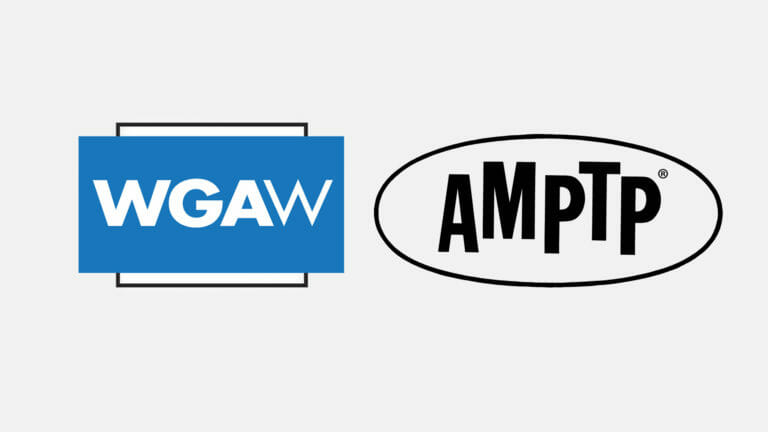By Cameron Cubbison · April 26, 2017

Update – May 2nd, 5:00AM PST: Strike averted! Working past the midnight deadline, the WGA and the AMPTP have reached a three-year contract that includes (among other things) job protection for writers parental leave, and a new definition that limits each episodic fee to 2.4 weeks for writers working on shorter television seasons. The WGA’s full statement to member can be read on Deadline, along with several industry reactions.
Update – May 1st, 5:00PM PST: As the midnight deadline draws near, reports suggest that talks between the WGA and the AMPTP remain heated, with sources telling Deadline that the two parties are yet to close in on a mutually agreeable deal. This, following what appeared to be progress over the weekend, as headway was made in several key areas including the WGA’s health plan, and additional compensation options for guild members staffed on shorter-season shows. Still, whether tonight’s final round of negotiations will result in a strike remains to be seen as it is possible that both parties will agree to temporarily extend the deadline if a deal is in sight.
With a May 1st deadline looming on the horizon, a potential writers strike is now an official possibility as contract negotiations continue to intensify between the Writers Guild of America (WGA) and the Alliance of Motion Picture and Television Producers (AMPTP).
In what proved to be a historic vote for the WGA, film and television writers were near-unanimous in their approval of a motion to arm union leaders with the ability to call a strike should the contract negotiations with the AMPTP fail to manifest into a collective agreement. Should the current pact expire without a deal in place, writers may be expected to stop work as early as next week.
Of the 67.5 percent of the WGA members who cast a ballot, an overwhelming 96.3 percent majority approved the potential strike action, providing guild leaders with an important bargaining tool in the ongoing discussions. The mandate also represents a sizable uptick from the 90 percent who voted similarly before the WGA’s last strike in 2007.
Key issues driving the ongoing discussions include an overhaul of the WGA’s health plan, which faces 145 million dollars in deficits over the next three years, along with increased pay for TV writers, who, according to the WGA, have seen a substantial salary decrease over the last two years due to the shifting production landscape of television.
The WGA points to the $51 billion dollar profit earned by the major companies last year, combined with the decrease in overall compensation as evidence to their claims. Guild representatives argue that the shorter season models have resulted in a disruption of income for Writer-Producers, despite the fact that producer fees for writers are not technically covered by the terms of the current collective bargaining agreement.
According to Deadline’s analysis of the WGA West’s own records, current earnings for TV writers have actually trended upwards since 2006 and 2010, with an average increase of $50,000 and $20,000 respectively.
Still, even with the overwhelming mandate authorizing the union to strike if necessary, it remains the goal of both parties to reach an agreement that avoids the 100-day industry slow-down of 2007. According to a statement released today by the AMPTP, that strike resulted in lost compensation for writers totaling over $287 million dollars.
Discussions between the WGA and the AMPTP are scheduled to resume tomorrow tomorrow morning.